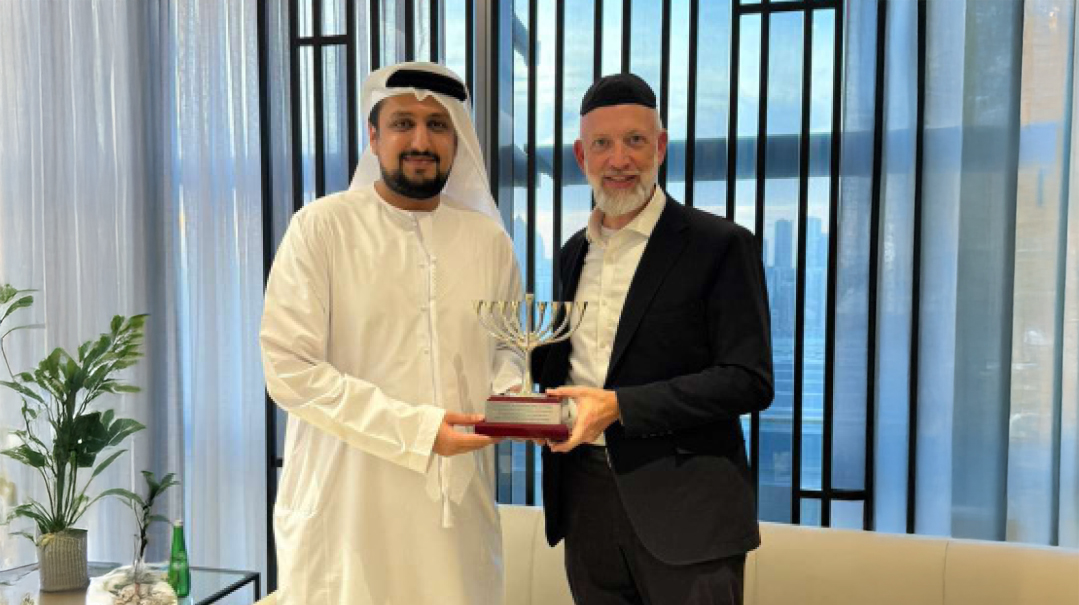Still Juggling

Mishpacha’s theme issue “Checks and Balances” held special resonance for me. One of my first forays into writing came about four years ago with a phone call from my rav. Rabbi Moshe Hauer, who served on the editorial board of the journal Klal Perspectives, asked me to write an article from the perspective of a former kollel wife for their Winter 2015 issue, “The Ben Torah Baal HaBayis.” I eagerly agreed, having much to say as someone who supported her husband through five years of kollel and then four years of medical school.
In my article, I wrote:
In our communities, the contemporary American frum baal habayis is a figure that is not talked about enough. He is not recognized for his significant contributions to Torah and the spiritual growth of his family and community. Some view him as the one who settles for daf yomi. Yet his learning, which he carves out early in the morning and/or late at night, is exceedingly precious to him, alongside his commitment to support his family. While actually quite heroic, the baal habayis’s efforts are often left unrecognized and underappreciated.
This is no longer the case. Thankfully, more resources, notably Rav Aaron Lopiansky’s sefer Orchos Chaim: Ben Torah for Life, are available today to help present and former kollel families navigate this significant transition in their lives.
But back then, we considered ourselves lucky to find rare guidance. When my husband decided to leave full-time learning and begin the long journey to becoming a doctor, he connected to a rav who helped him first achieve the necessary mindset shift in changing identities. He learned from Rabbi Moshe Hauer of Baltimore in a chaburah of other kollel men, all on the cusp of starting school or entering the workforce, about the Torah perspective on work. Because for so many years, it was only about learning.
Rabbi Hauer taught my husband the Chovos Halevavos that explains how Hashem gifted each species of animal the tools, aptitude, and appetite to hunt for a particular food. The cow desires grass. The cat craves the mouse. These are natural instincts that direct the animal toward what it needs for its sustenance. Hashem also gives man the leanings, strengths, and abilities so he, too, can provide for his family. Work no longer becomes just a way to pay the bills, but rather, in an ideal sense, a way to utilize one’s G-d-given talents and abilities. Work is quite simply another aspect of one’s avodas Hashem.
My husband had originally considered enrolling in a community kollel out of town, like many of his friends at Ner Israel. He even took a substitute teaching position to get his feet wet in chinuch. But he had nagging feelings that neither was right for him. The problem was broaching the topic with his wife, who was looking forward to the next stage of their lives together, which hopefully included a paycheck soon down the road.
With the help of a close mentor who provided some free career counseling one very late Motzaei Shabbos, my husband, with my support, decided that medical school was the ideal “Plan A.” Being a doctor would fully utilize his strengths and interests. The next problem was that there was no “Plan B.”
I remember sitting on the rocking chair in my children’s bedroom, baby in arm, wondering how absolutely crazy I must be. I made the mistake of researching the statistics of medical school admissions. In 2006, about the time we were thinking of this transition, the average acceptance rate of applicants into US medical schools was 6.6%. And my husband had dropped out of college in the late ’90s to go to yeshivah in Israel! For him, getting into medical school was against all odds.
What drove our decision to pursue this goal was a dogged idealism that this was the only way. I understood that if my husband had identified that this is what he wanted to do, then this is what he should be doing. I needed to support him fullheartedly in it. And his rabbanim from yeshivah supported him as well, assuring him with stories of men who were older than him who went to medical school. They also told him that when he walks in the door the end of the day, the most important thing is that he should be a happy person — so if he had found a career path to help him achieve that, he should pursue it with their blessing.
During his fifth year of kollel, my husband spent the evenings taking his science prerequisites at a local college, alongside other premed Ner Israel avreichim. Baruch Hashem, he was accepted by his first choice of medical school, the University of Maryland. We stayed put for another four years, and I continued to serve as the breadwinner, with the help of lots of medical school loans. After graduation, our family of five moved to Cleveland in 2011 for his residency. I finally got that paycheck out of him, during our tenth year of marriage.
At his medical school graduation, my husband kept a picture in his jacket pocket of his grandmother who had passed away just a year before. Babushka was an obstetrician in the former Soviet Union who had delivered tens of thousands of babies in her lifetime. Hashem most definitely put certain leanings and abilities in my husband’s genes so that he could become the caregiver he was meant to be. Today, Dr. Fleksher serves many members of our community, in addition to the broader Cleveland community, as a primary care physician. In a sense, that’s the happy ending. But I’m still learning some of the lessons of our journey.
After the kollel-to-college transition, we both experienced yet another transition, this time from schooling to work. There’s a term called “It Gets Better” in the medical training community to assure husbands and wives that it will be better once medical school and residency are all over. They say you can then buy your “IGB house” or your “IGB car” or maybe even just those “IGB strawberries” you never splurged on at the supermarket. With dreams of life getting better, I forgot how new transitions work.
New challenges — some never before imagined — are introduced with every new juncture. To me, the biggest realization was that my cheerleading days, first as the kollel wife and then as the medical school wife, were not over. They had only just begun. We had met our goal, achieved the dream, but now ahead of us was a lifetime of real-world working and living and balancing all our obligations. And it isn’t easy.
During kollel and training, we were blissfully naive about the financial requirements of the frum lifestyle, even though my mother tried to warn me. As a young couple, we lived off my teacher’s salary, thanks to an array of government programs and significant tuition breaks. Monthly rent for the “not as nice” apartments was cheap, and we lived frugally. Any salary somewhat significantly larger than the one I earned sounded good enough. I had no clue how much we would actually need in the future when the government programs were gone, our expenses grew alongside our family, the big tuition bills were in our mailbox, and giving maaser became relevant.
Over the course of these years and through this process, my understanding of my role as a developing person in my own right — and not just in relation to my husband — has evolved, too. I always used to think that to have a platform as frum woman, I needed to be a rebbetzin. I had to have the clout of being married to a rabbi to start a program or shiurim in my community or have influence in any way. When my husband decided not to go to a community kollel, and we wouldn’t be “rabbi and rebbetzin,” I understood that any position of influence was not in the cards for me.
But then in the summer of 2014, in the middle of my husband’s residency, I picked up my pen. I had something I wanted to say that I felt would contribute to the greater communal conversation, and after I was published and received positive feedback, I realized I didn’t have to have the title “rebbetzin” in front of my name to say it. Since then, I’ve taken part in numerous initiatives to strengthen and enhance our frum communities, both locally and nationally, and have found online and print forums to share my articles.
It seems that my journey in supporting my husband’s endeavors ultimately allowed me to realize my own, in an unexpected way. My most profound lesson learned was that anyone, rabbi, rebbetzin, or not, can step up to the plate and contribute to the community using the abilities Hashem has granted him or her.
Originally featured in Mishpacha, Issue 752. Alexandra Fleksher is an educator, a published writer on Jewish contemporary issues, and an active member of her Jewish community in Cleveland, Ohio.
Oops! We could not locate your form.







